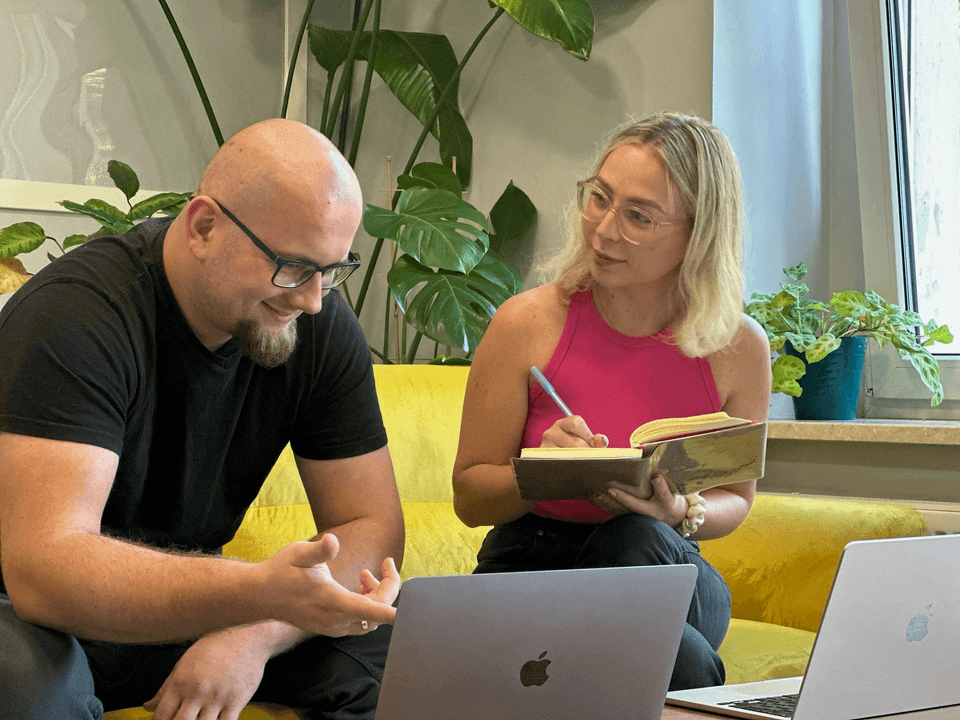Let’s talk about INTERNET. It is a crucial part of our daily lives, serving as a gateway to information, communication, and opportunities in our interconnected world.
However, it’s important to understand that not everyone experiences the Internet in the same way. Users have diverse needs, preferences, and abilities, and it’s critical to accommodate this variety to ensure that our content is accessible to all. Assistive technology plays a vital role in ensuring accessibility for individuals with disabilities, enabling them to navigate digital and physical environments more effectively and promoting inclusivity and independence.
Understanding Accessibility
Accessibility is the practice of designing products, services, and environments that are usable by as many people as possible, regardless of their abilities or disabilities. It is about creating a level playing field where everyone has equal access to information, opportunities, and services. Accessibility is not just about people with disabilities, but also about creating a more inclusive and equitable society for all.
What exactly does digital accessibility stand for?
Accessibility is about creating an inclusive and easy-to-navigate environment for everyone, regardless of their abilities. This involves the removal of barriers. Prioritizing accessibility makes digital platforms more user-friendly, enabling people with disabilities to actively engage in everyday activities.
Major tech companies like Apple and Microsoft integrate built-in accessibility features into their products, ensuring compliance with digital accessibility standards and promoting inclusivity in design.
The goal is to provide an accessible internet for all, facilitating access to information, communication, and online activities, including e-commerce. By following accessibility principles, we are creating a more inclusive and equitable online experience.
Please remember, that access itself is not the only thing that matters
Web accessibility ensures everyone can fully use websites. It’s not just about accessing content, but also about making it understandable and user-friendly by ensuring that user interface components and navigation are accessible and operable for all users.
Just to make things a bit clearer, let me give you an example:
Color-blind or visually impaired users may struggle with instructions to click a green icon. While assistive technologies like screen readers can describe an icon’s function, they can’t identify colors. Therefore, effective website design must consider these factors, enabling all users to interact efficiently and effectively.
Join me for a tour of the library
If you’re just starting to explore accessibility, understanding it fully might be challenging, and that’s okay. Let me help clarify this with a library analogy. Just follow along with an open mind as I explain the concept.
- ELEVATOR: Just as an elevator provides access to different floors of a library for those who can’t use stairs, accessible design features like skip links and keyboard navigation provide alternative ways to navigate a website for users who may have difficulty using a mouse or different pointing device.
- WELL-ORGANIZED SHELVES: Just as books are logically placed on well-organized shelves, making it easy for anyone to find what they’re looking for, website content should also be organized. Using headings, and consistent navigation supports all users, including those who rely on assistive technologies, to locate the information they need. Additionally, ensuring that user interface components are designed to be usable and operable for all users is crucial in creating accessible web experiences.
- BRAILLE SIGNS: Picture Braille signs in a library that provides information to visually impaired visitors. Similarly, providing descriptive alt text for images on a website allows screen reader users to understand visual content.
- QUIET STUDY AREA: Libraries often have designated quiet study areas where people can focus without distractions. A website should also be free from unnecessary distractions like auto-playing or flashing content. This helps users with cognitive disabilities or sensory sensitivities, allowing them to focus on the content.
Are we ignoring the needs of 1.3 billion people with disabilities?
Let me share some data from the WHO website. According to their statistics, approximately 1.3 billion people experience significant disability. This represents 16% of the global population, which equates to one in every six people.
Situational and temporary disabilities and assistive technologies
It's important to realize that accessibility solutions aren't only for those with permanent disabilities. Temporary or situational circumstances can also require accessible alternatives on a website. Let's once again dive into some examples.
- Imagine your client is a person traveling on a crowded tram while simultaneously using your website. Unfortunately, he cannot hear the audio recording on the site, but fortunately, the video is equipped with subtitles, allowing the user to still understand the presented content.
- Your client has broken his arm and is unable to use a mouse. If a keyboard cannot navigate your website, the client may consider quitting your service because you have prevented him from interacting with your website.
- Users with limited vision - poor contrast, font choices, and non-responsive elements when zooming in/out on the page can make the site less user-friendly, possibly discouraging potential customers from exploring further.
Now, consider this: if your website isn't accessible, how many people might struggle to navigate it or interact with it effectively?
This potential lack of accessibility not only poses an issue in terms of inclusivity but could also limit the reach and impact of your content, reduce site traffic, and slow business growth. Therefore, it's crucial to ensure your website is accessible to everyone, including those with disabilities.
Types of Disabilities and Accessibility
There are various types of disabilities that can affect an individual’s ability to access information, services, and environments. These include:
- Visual impairments: Blindness, low vision, color blindness, and other visual disabilities can affect an individual’s ability to access visual information. For example, someone with low vision might struggle to read small text or see low-contrast elements on a website.
- Hearing impairments: Deafness, hard of hearing, and other auditory disabilities can affect an individual’s ability to access audio information. For instance, a person who is hard of hearing might miss important information in a video without subtitles.
- Mobility impairments: Physical disabilities can affect an individual’s ability to move around or interact with physical environments. For example, someone with limited hand dexterity might find it challenging to use a mouse or touch screen.
- Cognitive impairments: Learning disabilities, intellectual disabilities, and other cognitive disabilities can affect an individual’s ability to process information. For instance, a person with a learning disability might need clear, simple language and well-organized content to understand information.
Web Accessibility and Guidelines
Web accessibility refers to the practice of designing websites and web applications that are usable by people with disabilities. The Web Content Accessibility Guidelines (WCAG) provide a set of standards for web accessibility, which include:
- Perceivable: Making web content perceivable by all users, including those with visual, auditory, or cognitive disabilities. This means providing text alternatives for non-text content, creating content that can be presented in different ways, and making it easier for users to see and hear content.
- Operable: Making web content operable by all users, including those with mobility or dexterity disabilities. This involves ensuring that all functionality is available from a keyboard, giving users enough time to read and use content, and helping users navigate and find content.
- Understandable: Making web content understandable by all users, including those with cognitive or learning disabilities. This means making text readable and understandable, making web pages appear and operate in predictable ways, and helping users avoid and correct mistakes.
- Robust: Making web content robust and compatible with assistive technologies. This involves ensuring that content can be reliably interpreted by a wide variety of user agents, including assistive technologies.
Digital Accessibility and Equal Access
Digital accessibility refers to the practice of designing digital products and services that are usable by people with disabilities. Equal access means providing the same information, services, and opportunities to people with disabilities as to those without disabilities. Digital accessibility is essential for ensuring equal access to information, education, employment, and other opportunities. By making digital content accessible, we ensure that everyone, regardless of their abilities, can benefit from the same information and services.
Reasons to include accessibility in your plans
Since you have reached the end of this article, I'm sure the above examples have highlighted the importance of accessibility for your website. Let's summarize them.
Moral reasons
Inclusivity for all. As we want to ensure that all users can access websites equally, we are responsible for delivering all the necessary available features to make this possible.
Business reasons
- Reaching a Wider Audience. Accessibility features not only enhance the user experience for those with disabilities, but they also offer valuable options for users without disabilities. These features can be beneficial in temporary or situational circumstances. An accessible website can reach a wider audience.
- Enhancing User Experience. Implementing accessibility solutions benefits all users. High color contrast, clear language, an organized site structure, non-flashing content, and non-auto-updating content - this all improves the overall user experience by making the content more usable and user-friendly.
- Boosting SEO and Search Rankings. Enabling a wider user audience to access your website and user-friendly approach boosts repeat visits and stimulates a positive user experience. Additionally, by implementing good practices, you make it easier for users to find your service. Making a website accessible improves SEO, and the site is more likely to be ranked higher.
Legal reasons and web content accessibility guidelines
In June 2025, the European Accessibility Act will come into force. The Act is also known as Directive 2019/882 and says that some everyday products and services need to be usable for people with disabilities. This covers, for example, websites and e-commerce platforms. Companies that sell these products and services have to carefully check the laws and rules in their own countries that bring the European Accessibility Act into effect.
Implementing Accessibility in Projects
Implementing accessibility in projects requires a proactive and inclusive approach. Here are some steps to follow:
- Conduct an accessibility audit: Identify potential accessibility barriers in your project and develop a plan to address them. This involves reviewing your existing website or digital product to find areas that need improvement.
- Involve accessibility experts: Collaborate with accessibility experts and people with disabilities to ensure that your project is accessible and usable. Their insights can help you understand the real-world challenges faced by users with disabilities.
- Use accessibility guidelines: Follow established accessibility guidelines, such as the WCAG, to ensure that your project meets accessibility standards. These guidelines provide a comprehensive framework for making web content accessible.
- Test for accessibility: Test your project for accessibility using assistive technologies and user testing. This helps you identify and fix issues that might not be apparent through automated testing alone.
- Provide alternative formats: Provide alternative formats for web content, such as audio descriptions, braille, and large print. This ensures that users with different disabilities can access the same information in a way that works for them.
By following these steps, you can ensure that your project is accessible and usable by people with disabilities, and that you are providing equal access to information and opportunities.
Why invest in accessibility – summary
An accessible service is easy to use for everyone, no matter if they have limitations. Making sure everything is accessible means we're creating something that's even better for all. Isn't that fantastic?
Think big, and go accessible ;)

